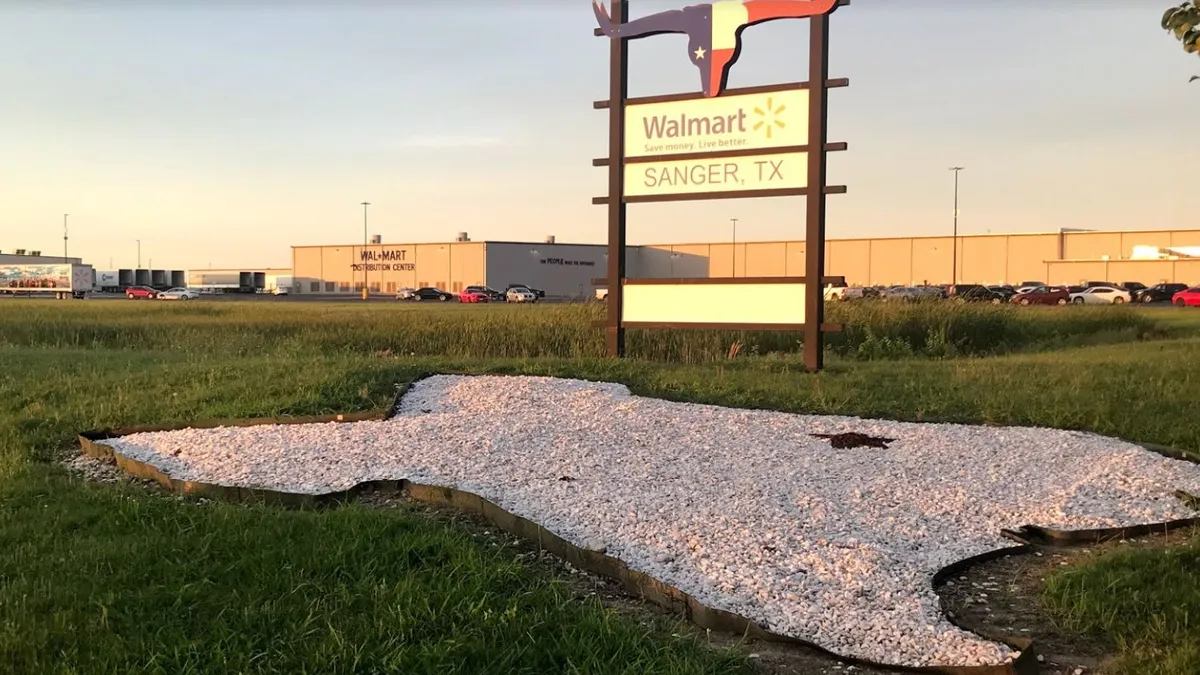Dive Brief:
- Walmart is opening training centers in its distribution centers, with the first one at a 1.2-million-square-foot facility north of Dallas in Sanger, Texas, The Dallas Morning News reported.
- Supervisors for Walmart go through training in leadership, safety and supply chain, according to The Dallas Morning News. The academy conducting the training plans to add technology-related course work in the future.
- The Sanger facility has 945 employees, and 50 managers will graduate today from the training. Walmart did not respond by press time to questions on future locations of its distribution center training.
Dive Insight:
Walmart has invested in a number of training and workforce development-related programs, for supply chain and other employees. The retail behemoth offers employees access to online degrees at partner universities for just $1 per day. Programs include bachelor's degrees in business administration, supply chain management, logistics management and operations management. It's also added in-store trainings.
With an expansion of training programs to distribution centers, Walmart zeroes in on the need for skills training and development in its supply chain.
"The needs of our associates in supply chain are evolving," Steve Miller, vice president of U.S. supply chain people for Walmart, told The Dallas Morning News. "Skills needed today are different than 15 or 20 years ago."
The realization of the need for evolving skills has prompted a wave of reskilling across many companies' supply chains. Technology in large part is driving the need for training and new skills. A McKinsey report found demand for technology skills in the workforce will rise by 55% by 2030, and 66% of surveyed organizations named "addressing potential skills gaps related to automation/digitization" as a top 10 priority.
This summer, Amazon committed to investing $700 million to upskill 100,000 employees by 2025, with much of the coursework focused on existing and emerging technologies.
For businesses that realize a skills gap in the workforce, the choice is often between reskilling existing workers or hiring new talent. Implementing worker programs for reskilling can be costly and time-consuming. Plus they must be continuous, as the need for new skills evolves.
Yet hiring anew presents its own challenges. The Society for Human Resource Management says the average cost per hire is $4,129. An MHI report noted hiring skilled workers was the biggest challenge for supply chain professionals, due to low unemployment and a limited talent pool.
Walmart's investment in its own employees may also help with retention, a common problem for many supply chain fields such as trucking and warehousing.













